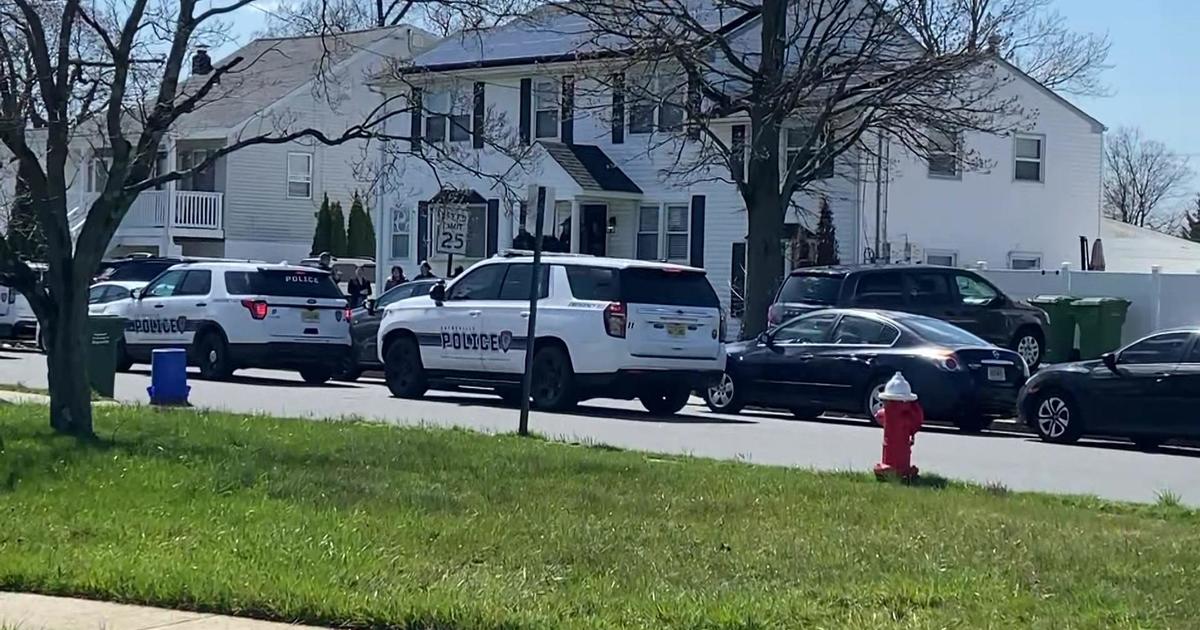Judge Orders New Hearing In Bridgegate Complaint Against Christie
NEWARK, N.J. (CBSNewYork/AP) -- A New Jersey judge on Thursday ordered a new hearing on a criminal misconduct complaint against Gov. Chris Christie in the George Washington Bridge lane-closing scandal, ruling that a lower court wrongly found probable cause for the case to proceed.
State Superior Court Judge Bonnie Mizdol reversed the municipal court finding of probable cause and sent the case back to the lower court for a new hearing on the issue. In her ruling, Mizdol also refused a request from Christie's attorneys to dismiss the citizen's complaint entirely.
The complaint, filed by retired Teaneck firefighter William Brennan, alleges Christie "knowingly refrained from ordering that his subordinates take all necessary action to re-open local access lanes" from Fort Lee that had been "closed with the purpose to injure Fort Lee Mayor Mark Sokolich" for not endorsing Christie's re-election bid in 2013.
The complaint claims residents were "deprived the benefit and enjoyment of their community."
Two of Christie's former aides were convicted in federal court in November.
Mizdol agreed with arguments from Christie's attorneys that the lower court's October finding of probable cause was flawed because they weren't allowed to participate or cross-examine Brennan. She found that oversight "was a violation of fundamental constitutional safeguards.''
But in turning down the request for dismissal, she rejected their arguments that the evidence Brennan offered, testimony from the recent federal trial, wasn't sufficient for a probable cause finding.
In the trial, Christie's former deputy chief of staff, Bridget Kelly, said that during the four days of lane closures in September 2013, she told Christie about Sokolich's concerns that the traffic jams were some form of political payback.
Christie's response was to "let Wildstein handle it,'' referring to David Wildstein, the former Port Authority of New York and New Jersey official who pleaded guilty in the scandal.
Christie has publicly denied knowing about the scheme until months later.
Kelly and Bill Baroni, one of Christie's top appointees to the Port Authority, were convicted of wire fraud, civil rights offenses and misapplying Port Authority property.
Christie attorney Craig Carpenito argued that Wildstein's testimony in the federal trial didn't show Christie knew about the motive behind the closing of access lanes to the bridge in September 2013.
Wildstein testified he and Baroni told Christie about the traffic jams at a Sept. 11 memorial event in New York and that Christie laughed and made a sarcastic comment when told the mayor of Fort Lee wasn't getting phone calls for help returned.
Brennan argued that the law doesn't even require a complainant to testify at a probable cause hearing and that in some instances a judge doesn't even have to hold a hearing to determine if probable cause exists for a case to go forward.
Mizdol has previously rejected Brennan's motion to have a special prosecutor appointed to the case, ruling that he didn't have the authority to make that request. Brennan argued that the entire state attorney general's office, as well as each county prosecutor's office in New Jersey, would have a conflict of interest because they owe their jobs to Christie.
Official misconduct is punishable by a potential prison term of five to 10 years upon conviction. Before Christie could face a criminal trial, prosecutors would have to collect evidence and present it to a grand jury, which would have to hand up an indictment.
(TM and © Copyright 2017 CBS Radio Inc. and its relevant subsidiaries. CBS RADIO and EYE Logo TM and Copyright 2017 CBS Broadcasting Inc. Used under license. All Rights Reserved. This material may not be published, broadcast, rewritten, or redistributed. The Associated Press contributed to this report.)



